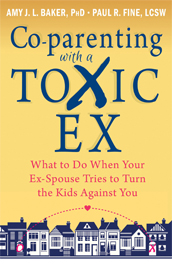What Happens When A Parent Breaks A Court Order?

- This blog contains affiliate links, which we may receive a commission for purchases. The decision is yours, whether or not you decide to buy.
When parents cannot decide arrangements for their children once they have separated the court can issue a child arrangements order to clarify a child’s living arrangements. This order is legally binding, and if a parent breaches it they will be in contempt of court which could mean fines, enforcement orders and even imprisonment (although this is extremely rare).
If this is happening to you, what legal options do you have? Rachel Fisher from Stowe Family Law in Bristol joins us with advice on what happens when a parent breaks/breaches a court order?
What can I do if my partner breaks or breaches a court order?
If you are experiencing difficulties with a child arrangements order, including minor or major breaches, it is advisable to keep a diary of these. This means you will have a clear picture of the difficulties you have faced.
Then I would advise my client to try and discuss the breach (s) with the other parent in the hope that they can reach an agreement without having to return to court. The court process can be stressful, timely and expensive.
Another option is to use mediation as a neutral forum with a third-party to try and resolve the disagreements. However, in some cases, it is not possible to discuss or agree on arrangements and therefore, the matters must be returned to the court to enforce the original order.
How do you enforce a court order?
An application for enforcement is made on a Form C79. Enforcement proceedings must be dealt with without delay and if possible, listed before the judge that dealt with matters previously. A hearing will be listed within 20 working days of the application been issued.
What will the court consider when deciding to enforce an order?
Once the court receives an application to enforce a child arrangements order, they will consider the following:
- Whether the facts for the alleged non-compliance are agreed or whether it is necessary to conduct a hearing to establish them
- The reasons for any non-compliance
- The wishes and feelings of the child Whether any advice is required from Cafcass on the appropriate way forward
- Assess and manage any risks of making further or other child arrangements orders
- Whether a separated parents information programme or referral for dispute resolution is appropriate
- Whether an enforcement order may be appropriate
- The welfare checklist
What are the penalties for a breaching a court order?
At the top of all child arrangements order, there is a warning notice that sets out the consequences to both partiesabout what will happenif they do not comply with the order.
- Referral of both parents to a separated parents information programme or mediation Unpaid work requirement of between 40 and 200 hours where the court is satisfied beyond a reasonable doubt that one party has failed to comply with a provision of the order
- Committal to prison (in very rare/serious cases)
- Changing which party the child or children live with (in very extreme/serious cases)/variation of the child arrangements order to include a more defined order
- A fine
- An order for compensation for financial loss
- A contact enforcement order or suspended enforcement order
Can you get a court order changed?
If circumstances change once a child arrangements order has been made, then it might be necessary to ask the court to vary the order if an agreement cannot be reached between the parents.
You will need to complete a C100 application form and explain why you are asking the court to vary the current child arrangements order.
Can court orders be overturned?
It is possible to appeal decisions made by the family court, and I would advise anyone considering this to take legal advice on their individual circumstances.
What can I do if I think my child is at risk?
If you consider that your child is at risk, then you should seek urgent legal advice on the steps you can take to safeguard your child. Depending on your circumstances, it may be necessary to make an urgent application to the court.
This article originally appeared on the Stowe Family Law Blog
You may also like
Books
Buy now from Amazon
Podcast
If you’re looking for some straight-up, positive advice on topics that affect your daily life, then check out The Sue Atkins Parenting Show. Each week Sue bare will discuss every possible aspect of your parenting challenges, from weaning to whining, boundaries round technology to stroppy teens. You’ll get practical tips, techniques and advice that really work- and it’s all totally free.
Articles
- Help, My Ex Has Changed The Locks. What Can I Do?
- How To Be Great Parents Through Separation And Beyond
- Divorce From A Child's Perspective
Videos
Practical advice and tips from professionals on what to do with issues and challenges around divorce from parenting to finance.
Events
Practical tips & advice designed to help people going through divorce, whether online or in person.
Useful links
Here's a selection of organistaioins from parenting to finance to help you with your divorce.
Legal professionals
Related Posts
-

The Real Cost of Divorce: Hidden Expenses and Smart Savings
-

Support For Men Going Through Divorce: Finding Community, Guidance, And Strength
-

Is Your Phone Ruining Your Marriage? The Real Link Between Social Media And Divorce
-

5 Essential Tips For A Joyful, Stress-Free Christmas As A Divorced Or Divorcing Parent
-

How to Rebuild & Heal Your Life After Divorce

.jpg)

.jpg)



.jpg)

